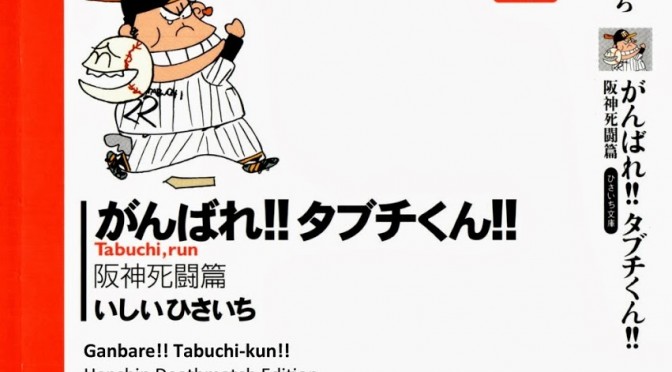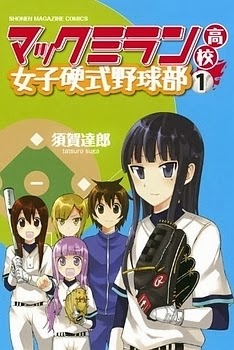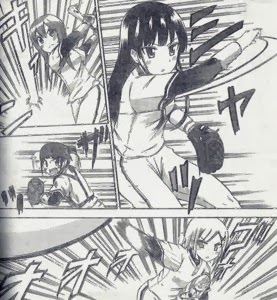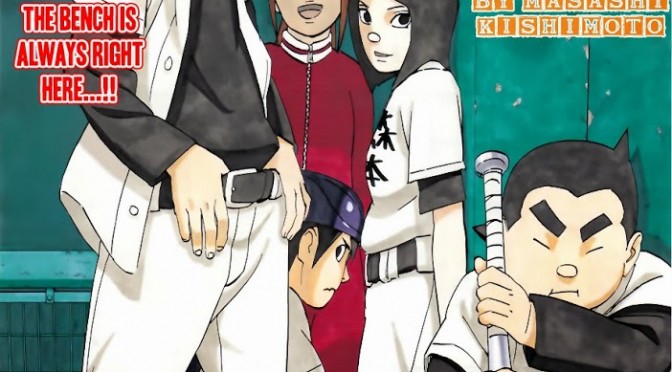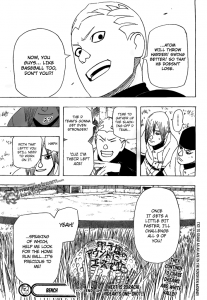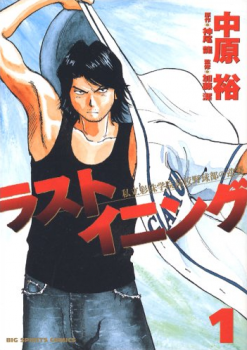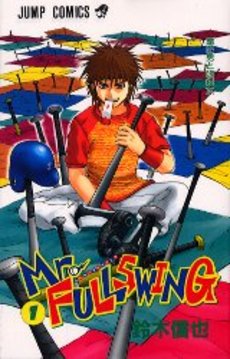Earlier this week, I read volume 1 of Ganbare!! Tabuchi-kun!! (がんばれ!!タブチくん!!), a 4-koma baseball manga by Ishii Hisaichi. Western fans might know him best as the guy who wrote the original manga that Studio Ghibli later adapted into “My Neighbors the Yamadas.” I’m on a baseball manga kick right now (as opposed to a real life baseball kick. I’m not that into real-life baseball), so I started this on a whim, but it turned out to be pretty good.
The most interesting thing about Tabuchi-kun – apart from the content, of course – is that it was based on the career of a real-life catcher/first baseman/cleanup hitter. In fact, “based on” is too mild. It straight up caricatured Koichi Tabuchi, right down to using his full name and team. Basically apart from his wife “Miyoko”, any named character in the manga is an actual human being.
Naturally this makes for interesting reading, but it can also make you uncomfortable when the comic gets a little mean-spirited. The whole series is aimed at pointing fun at Tabuchi, but sometimes it’s done in more cruel fashion and sometimes it’s mild and heart-warming. It’s sad to see Tabuchi booed out of the stadium or ostracized by his peers for no good reason other than that the mangaka just doesn’t like him.
It becomes even sadder when you go to J-wiki and read that the manga started right at the time when Tabuchi was playing poorly because he was recovering from a career-threatening injury that put him in the hospital for over three months and led to him gaining some weight. It’s like that tasteless “Derek Eater” headline the New York Post ran a couple of years ago, except imagine they ran that headline every week for 10 years, even long after Jeter had retired (not a Jeter fan, just saying).
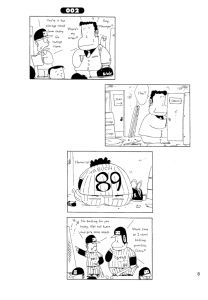
However, it turns out that the real Koichi Tabuchi is a huge, open fan of the manga and absolutely loves it. He even credits it with helping him meet his current wife, so if anything he’s grateful for its existence. So if Tabuchi isn’t mad, then I’m not mad either. No one knows what other recurring characters like Yasuda (my favorite), Suzuki, Oh and Hirooka think of the series, but since they generally come across in a better light than Tabuchi does, they probably don’t have much to complain about.
This frees me to enjoy the silly, slightly mean humor of volume 1 for all it’s worth. I’m looking forward to reading the rest, because part of the humor comes from the interplay between characters like Yasuda and Ooya, and Tabuchi and Kakefu, and much of the first volume is spent just introducing and establishing those characters.
There are 3 volumes of Ganbare!! Tabuchi-kun!! and a further 5 volumes of the follow-up, Tabuchi-kun. You don’t need to know much about Japanese baseball to enjoy this manga, though it helps to know Sadaharu Oh, current holder of the world-record in career homeruns (868) since he shows up a lot. Apart from that, just substitute your favorite team and players and enjoy.
